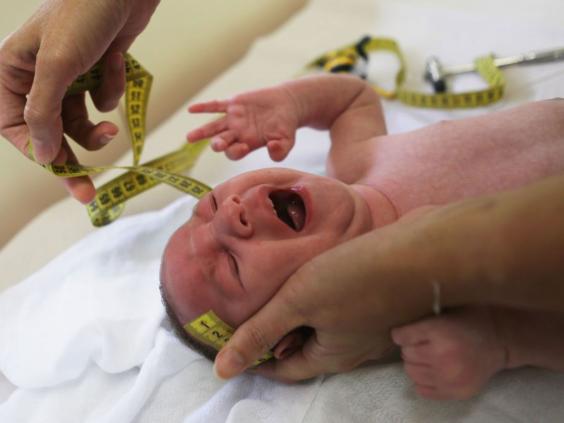Astronaut Scott Kelly: I could have spent longer in space
Mar 06, 2016
The mayor said Kelly is remembered by many in town, noting the astronaut serves as an inspiration for local schoolchildren. He faces a greater risk of cancer than most earth-bound folks due to radiation exposure that's 20 times higher in space.
Clinton now faces struggle to win back younger voters
Mar 06, 2016
DFLers have 93 delegates to the Democratic National Convention; 77 will be allocated according to the Tuesday caucus results. The Democratic contests award delegates in proportion to the vote, meaning that even the loser wins some delegates.
Investors "to lose billions in pension tax relief"
Mar 06, 2016
It is the latest big decision to be delayed or dropped before the European Union referendum. This is not the first time that Osborne drops plans from economic reforms.
Find out what killed Bobbi Kristina, autopsy result is finally out
Mar 06, 2016
Bobby Brown canceled a SC show after his late daughter's autopsy was released. " Krissy will always live in my heart and soul ". The star's daughter died at the age of 22 in a hospice on 26 July 2016.
Where You Can Watch UFC 196: McGregor V Diaz In Dublin
Mar 06, 2016
It will be a big test of the interest level a major women's fight will get after Rousey is no longer in the sport. The UFC 196 early preliminaries have a start time of 7pm EST / 4pm PST, and will be televised on UFC Fight Pass.
Fox News Republican presidential debate in Detroit
Mar 06, 2016
How can you confront her today?", Cruz asked. "Donald, please, I know it's hard not to interrupt, but try", Cruz said. Also Thursday, dozens of conservative national security experts warned that Trump is unfit to be commander in chief.
The format change of qualifications validated
Mar 06, 2016
Last week reigning champion Lewis Hamilton said he didn't think the changes would make a great difference. The first session will last 16 minutes with the slowest driver eliminated once seven minutes have lapsed.
Desh-se nahi, Desh-mein Azadi: Kanhaiya takes on the system
Mar 06, 2016
One phrase, where he stated he wanted "freedom in India as opposed to freedom from India" caught public attention everywhere. Defining his idea of politics, Kanhaiya said, "Politics has two centres - one in parliament and another on the streets".
Adele Uses Brits Acceptance Speech To Voice Support For Kesha
Mar 06, 2016
After cancelling her GRAMMYs performance last minute, people were anxious Rihanna might do the same for her BRITs performance . She is the most loved singing sensation of the recent times, her voice has enchanted many, and she is none other than Adele.
Stennis in South China Sea
Mar 06, 2016
The Paracels, on the other hand, are largely a dispute between China and Vietnam. However, it will still have the world's largest standing military in the world.
New Illinois AD fires football coach Cubit after 1 season
Mar 06, 2016
A week before the start of the 2015 season, the school fired then-head coach Tim Beckman in the middle of a scandal. The rest of the coaches will have the opportunity to interview with the new head coach.
Swansea boss Guidolin still in hospital
Mar 06, 2016
With just one point managed from the last eight league matches, the Norfolk club appear destined for a swift return to the Sky Bet Championship.
Calf Injury Sidelines Arsenal's Petr Cech For Up To A Month
Mar 06, 2016
Furthermore, Sanchez suggested that things have even deteriorated in the last 12 months. "I think we can win the Premier League with the players we have".
United Nations airdrops tons of aid for besieged Syrians in Deir el-Zour
Mar 06, 2016
He said teams from the Syrian Arab Red Crescent on the ground confirmed that "pallets have landed in the target area as planned". Deir Ezzor is a government-held enclave surrounded by the so-called Islamic State.
China cuts its economic growth target to 6.5-7 percent
Mar 06, 2016
The world's second-largest economy also set its growth target for the next five years at a modest 6.5% or above. The demand for exports has significantly reduced and growth last declined to a 25-year low of 6.9 percent.


